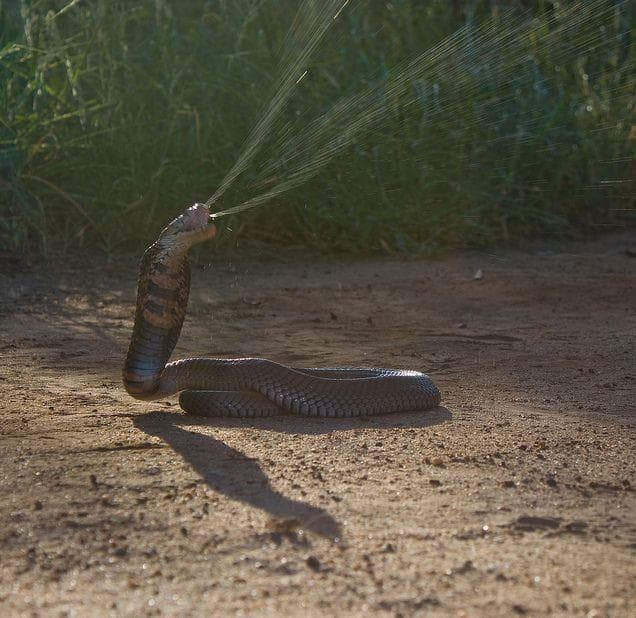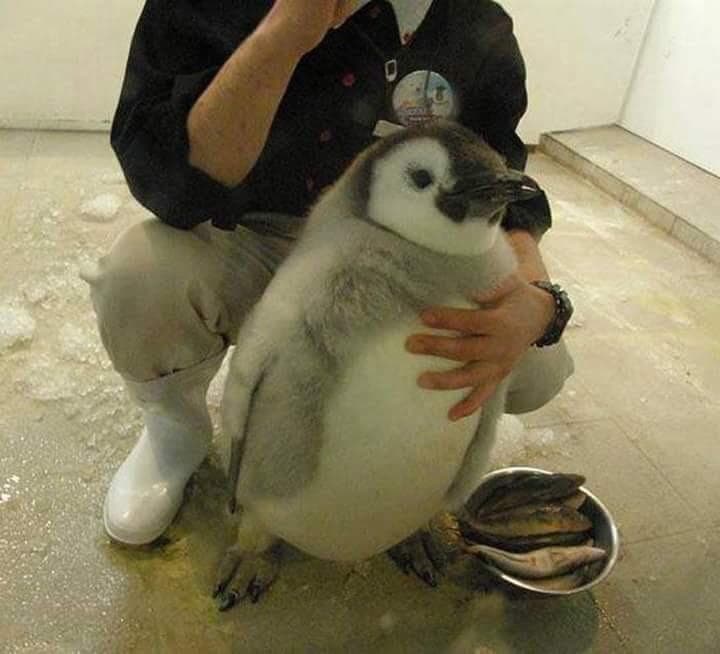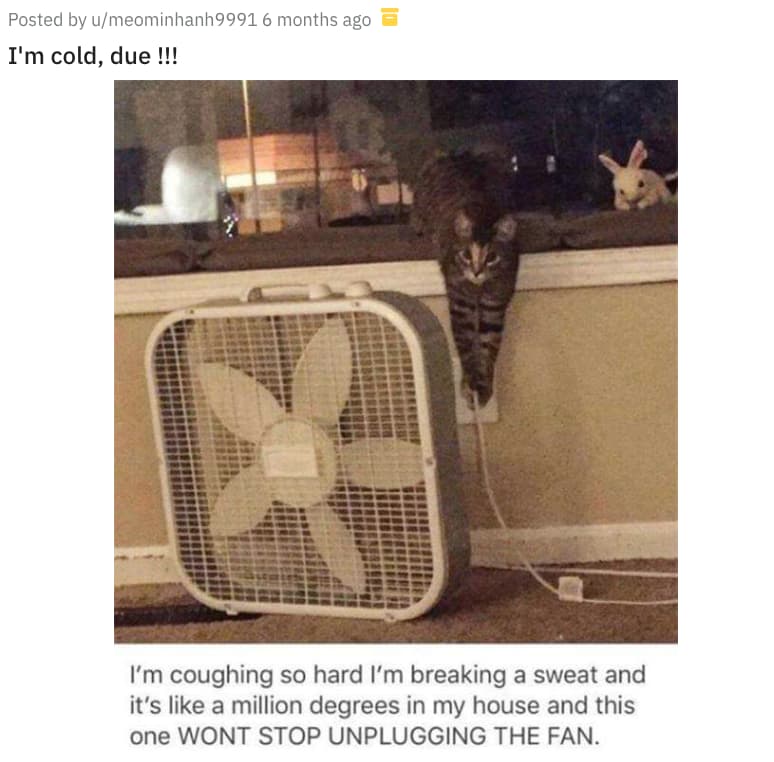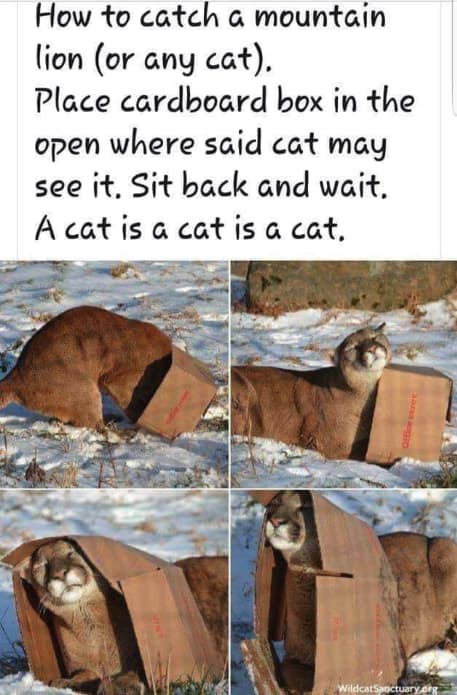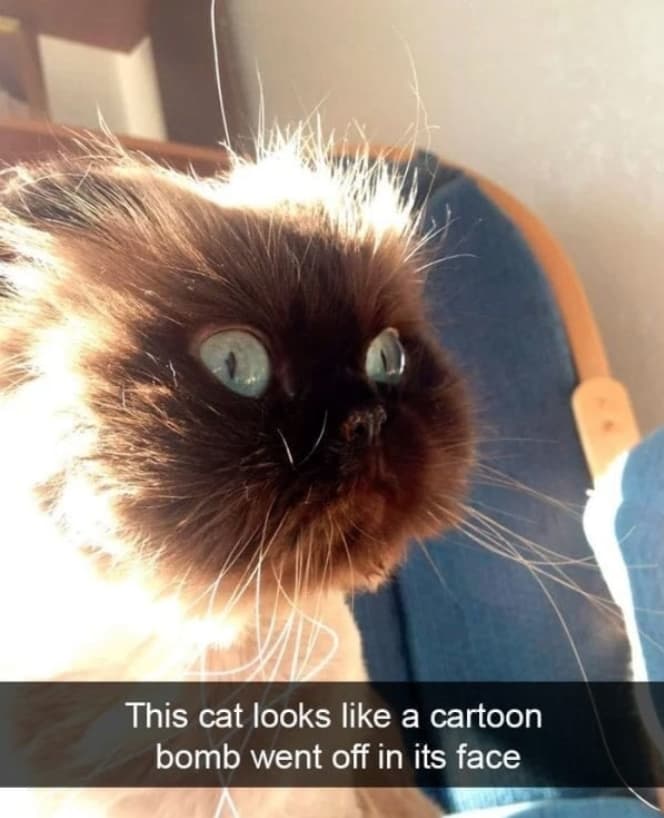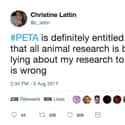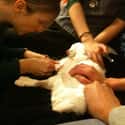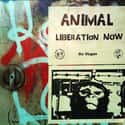-

(#1) PETA Criticized Steve Irwin's Google Doodle And The Late Crocodile Hunter's Career
Google celebrated famed crocodile hunter Steve Irwin's 57th birthday in February 2019 with a Google doodle. Irwin was the host of The Crocodile Hunter, a show in which he used his wildlife expertise to relocate dangerous animals who wandered too close to populated areas. He lost his life during a snorkeling expedition in 2006 when a sting ray pierced his heart. The doodle featured Irwin holding a crocodile as it chewed on the letter 'L.'
In response, PETA - who is actively against using animals for entertainment - tweeted that Irwin was "harassing a ray" when he passed and that the doodle "sends a dangerous, fawning message." They further stated that, "A real wildlife expert and someone who respects animals for the individuals they are leaves them to their own business in their natural homes."
PETA received backlash for their accusations, and some withdrew their support for the organization and labeled them an "embarrassment to animal rights." The organization told USA Today, "People should examine Steve Irwin’s record of wildlife [harassment]."
-
(#2) They Harassed And Intimidated A Scientist Trying To Save Birds
In 2017, Louisiana State University ornithologist Dr. Christine Lattin began receiving hate mail and threats. According to Lattin, she was receiving 40 to 50 messages a day. “You should kill yourself, you sick b*tch,” one message read. “I hope someone throws you into the fire…” said another. She discovered the animal rights organization began a campaign against her. Under the headline “Tell Yale University Stop Tormenting Birds!” PETA posted about her research on their website claiming she was committing animal abuse through wasteful and pointless experiments.
At the time the controversy began, Lattin was working for Yale University, studying the effects of climate change and environmental disasters on birds. Her work began at Tufts University in Medford, MA during her Ph.D. research, where she was investigating how birds responded to manmade disasters like oil spills and human encroachment by measuring changes in their stress hormones with the hopes that her research could aid in conservation efforts.
When she began at Yale as a postdoc she also pioneered the use of medical imaging techniques to study hormonal and physiological changes in living birds. Though the research required she capture and ultimately euthanize wild house sparrows, the hope and goal of medical imaging was to minimize the amount of birds needed for the experiments, and alternatively release them back in the wild.
PETA, however, claimed her research had no relevance to conservation efforts. They filed complaints with the U.S. Department of Agriculture, urged Yale and her funders to stop supporting her research, and organized protests against her outside Yale, her research building, and her home. Other publications and advocacy groups have evaluated the claims PETA has made and the validity of Dr. Lattin’s research, concluding firstly that PETA’s claims are based on misrepresentations of the research, but also Lattin’s research has had applicable benefits, direct conservation applications, was done according to humane practices.
Harassment, however, still continues, calling for “LSU to end her cruelty.”
-
(#3) They Sued A Man For Taking A Picture Of A Monkey On Behalf Of The Monkey
In 2011, British Photographer David Slater traveled to Sulawesi, Indonesia, and captured a photo most photographers only dream of taking: an endangered Celebes crested macaque giving a toothy grin directly into the lens. Titled “Monkey Selfie,” Slater claimed he coaxed a troop of macaques towards his unattended camera and snap a photo of themselves. Slater made only enough money from the image to pay for his ticket to Indonesia and included it in his book Wildlife Personalities.
But in 2014, the image became a matter of legal dispute when multiple online publishers used the image. Slater asked they take the images, but they argued the monkey owned the copyright, not Slater, since it was the monkey who ultimately took the picture. US Courts determined the monkey could not legally own the copyright. In response to the case, the US Copyright Office amended its policies to state that works produced by animals would not qualify for copyright.
Among the many complexities of this case (Can animals own copyright? does Slater own the copyright if he didn’t press the shutter to take the photo? How much intent or intellect is needed to rightfully own copyright?) PETA filed their own lawsuit – on behalf of the monkey, Naruto. The suit asked the court to allow PETA to administer all proceeds of the photo for Naruto and other macaques living in the reserve where the photo was taken.
After years in court, PETA’s attempts to appeal, and financial struggle for Slater, a US judge determined there is “no indication” that the Copyright Act extended to animals. PETA and Slater did come to an agreement, however, that Slater will donate 25% any future revenue from using or selling “Monkey Selfie” to charities that protect the endangered monkey species.
-
(#4) They Have Campaigned Against The Idea Of 'Pets'
PETA has a problem with the way humans have turned animals into "pets." Members are against even the word "pet" because they consider it to be "speciest language." Instead, they use the term "Companion Animals."
The organization "believe[s] that it would have been in the animals' best interests if the institution of 'pet keeping' - i.e., breeding animals to be kept and regarded as 'pets' - never existed." In other words, PETA aims its ire at both puppy mills - which are known to use inhumane practices - and breeders, even if they are safe and humane.
PETA would also like to see a world without pets someday. As John Bryant, a representative of PETA, put it:
The cat, like the dog, must disappear… We should cut the domestic cat free from our dominance by neutering, neutering, and more neutering, until our pathetic version of the cat ceases to exist.
-
(#5) One PETA Shelter In Virginia Euthanized The Majority Of Animals In Its Care
PETA believes that euthanasia is a necessary tool in correcting the overpopulation of animals in shelters. According to the organization:
Euthanasia literally means 'good death,' and true euthanasia - delivered by an intravenous injection of sodium pentobarbital - is painless, quick, and dignified. Because of the high number of unwanted companion animals and the lack of good homes, sometimes the most humane thing that a shelter can do is give an animal a peaceful release from a world in which dogs and cats are often considered 'surplus.' [...] Until dog and cat overpopulation is brought under control through spaying and neutering, we must prevent the suffering of unwanted animals in the most responsible and humane way possible.
Indeed, at least one PETA-run shelter practiced euthanasia at high rates. According to records from 2011 published by The Atlantic, of the 760 dogs brought into a PETA shelter in Norfolk, Virginia, only 19 were adopted, and 36 were sent to other shelters. The remaining 713 dogs - 93% of them - were euthanized. The numbers were similar with cats: 1,198 of the 1,211 animals - nearly 99% of them - brought in were put down.
According to Certified Humane, a non-profit organization dedicated to improving conditions of livestock and farm animals, PETA's president, Ingrid Newkirk, defended the organization's actions:
I would go to work early, before anyone got there, and I would just kill the animals myself … I must have killed a thousand of them, sometimes dozens every day. The animals…got the gift of euthanasia, and to them it was the best gift they’ve ever had. How dare you pretend to help animals and turn your back on those who want an exit from an uncaring world!
-
(#6) They Said That Shearing Sheep Is Murder
There is some validity to the argument that domesticated sheep - unlike wild sheep - have been bred to require shearing.
But a 2015 PETA ad spread misinformation about about the sheep-shearing process. The ad shows a "lamb" (actually a foam and plastic model) that has been killed to harvest its wool for a coat. The suggestion here is that wool clothing causes lambs and sheep to die - and that's not true. Domestic sheep need to be sheared, or they can get severe health problems, including infections and exhaustion. Still, PETA maintains that wool clothing causes sheep suffering because they are kept captive and forced to grow hair for our benefit, and that shearing lambs can cause mutilation and death.
Farmers objected to this ad, and launched a formal complaint. Some responded by doing counter-ads, where the shearers posed naked while shearing sheep, to show that they were not uncaring, and that the sheep were not harmed in the process.
-
(#7) They Made An Anti-Pokémon Game
As part of its crusade against dog fighting - which is illegal in the United States and widely condemned as "grisly" and "inhumane" - PETA has also criticized what it considers to be a digital dog fighting game: Pokémon. PETA claims the game primes people to mistreat animals.
So PETA launched its own game to counter Pokémon. In 2012, PETA came out with Pokémon Black and Blue. In this game, players become Pokémon who have thrown off their shackles and are now rising up against their former owners. The game is meant to show how Pokémon normalizes the subjugation of animals, and is therefore a bad influence.
Pokémon Black and Blue isn't PETA's first foray into the gaming world - the organization has produced other parody games as well.
-
(#8) They Have Repeatedly Objectified Women To Get Attention
PETA has routinely objectified women to protest the objectification of animals. Throughout their existence, PETA has created ads and demonstrations that use naked, abused, or sexually objectified women. They've shown women in chains and have even parodied public service announcements about abuse to make statements about how animals are mistreated. PETA also uses the nudity of celebrities - like Alicia Silverstone - to get attention. They've even resorted to fat- and body-shaming women to try to get them to go vegan.
Some of PETA's ads have verged on the pornograpic. Their 2016 Super Bowl ad - which was banned - depicted couples having sex to claim vegans were better lovers. The tag line was: "Last Longer. Go Vegan."
-
(#9) They Tried To Link Dairy To Autism
Following erroneous claims that vaccines cause autism, PETA made its own unscientific allegation: they erected a billboard claiming milk causes autism. The ad even riffed on the famous "Got Milk?" slogan with the phrase, "Got Autism?"
The Autism Self Advocacy Network fought to have the billboard taken down, and they eventually won. Even then, PETA did not back down on its stance that dairy worsens or causes autism. They even point to online testimonials as potential proof of dairy's harmfulness when it comes to autism. As the article on their site puts it:
Regardless of the cause, testimonials show that many people with this condition may be able to find relief with a simple dietary change—removing milk from their diet. The Internet contains numerous heart-wrenching stories from parents of kids who had suffered the worst effects of autism for years before dairy “products” were eliminated from their children’s diets.
The studies PETA cited, however, have been refuted.
-
(#10) A PETA Activist Bought A Gravestone To Mock Colonel Sanders
KFC founder Colonel Harland Sanders - a real person, not a brand cartoon - passed in 1980, leaving behind countless family, friends, and associates.
Matt Prescott, a PETA activist in Kentucky, however, saw Sanders' passing as an opportunity to protest KFC's production of chicken meals. In 2008, PETA bought an adjoining plot to Sanders' grave. Then, they commissioned a headstone with Prescott's name on it and a poem:
Kind
Friend of
ChickensToday we honor your memory
Our love for you continues
Rest in peace
Those suffering and
Unable to move
Remember you
Each one striving for
SalvationBrother
In us as in you
Remain
Dreams for the
Souls of the voicelessAs U.S. News & World Report pointed out, the first letter of each line spells out "KFC tortures birds."
When asked about the gravestone, Prescott said:
This headstone will remind visitors that KFC stands for cruelty and death. We’ll continue to pressure KFC executives to stop these grotesque abuses of billions of chickens—no matter how long it takes.
The cemetery later demaded that PETA remove the headstone.
-
(#11) PETA's Founder Said In Her Will That She Wants To Be Made Into Leather
PETA founder Ingrid Newkirk wants to be useful to the animal welfare movement even from beyond the grave. She hoped that PETA would use her corpse to protest animal cruelty. Newkirk went so far as to write a will that asks PETA to turn her skin into leather and use her body for food. She also requested that her body parts be sent to different officials in the meat and animal industries:
That one of my eyes be removed, mounted, and delivered to the administrator of the U.S. Environmental Protection Agency as a reminder that PETA will continue to be watching the agency until it stops poisoning and torturing animals in useless and cruel experiments; that the other is to be used as PETA sees fit.
-
(#12) They Piggybacked Off Articles About Jeffrey Dahmer To Spread Their Message
After Jeffrey Dahmer - the Milwaukee-based serial killer who murdered, mutilated, and cannibalized his victims - was arrested in 1991, the public was distressed to hear details of his crimes. PETA used the news for their own publicity. The organization produced a newspaper ad that described what sounded like a grisly, Dahmer-esque murder, but turned out to be the slaughter of animals:
Milwaukee. . . July 1991. They were drugged and dragged across the room . . . Their legs and feet were bound together. . . Their struggles and cries went unanswered. . . Then they were slaughtered and their heads sawn off. . . Their body parts were refrigerated to be eaten later. . . It's still going on. If this leaves a bad taste in your mouth, become a vegetarian.
Workers in the meat industry condemned the ad, since PETA compared them to Jeffrey Dahmer. Repulsed by PETA's attempt to capitalize on Dahmer's crimes, some papers refused to run the ad.
In 2014, PETA announced its intention to buy and turn Dahmer's house into a vegan restaurant. The organization did not follow through with the proposal, however, due to zoning issues.
-
(#13) They Used Holocaust Victims In Their Posters
PETA has a history of likening animal suffering to the Holocaust. PETA President Ingrid Newkirk even said, "Six million people died in concentration camps, but six billion broiler chickens will die this year in slaughterhouses," suggesting that chickens suffer more than the human victims of the Holocaust.
The organization doubled down on its invocation of the Holocaust. In 2003, it ran an ad campaign commonly known as "Holocaust On Your Plate." In this poster campaign, PETA used photos from concentration camps and photos of Holocaust survivors alongside caged animals to compare the living circumstances.
The ads received intense backlash. Germany banned the ad campaign, and the German high court determined that the posters make "the fate of the victims of the Holocaust appear banal and trivial."
-
(#14) PETA Used KKK Imagery To Protest Animal Breeding
In 2009, PETA sent two representatives to protest the Westminster Kennel Club Dog Show in New York City. There, activists put on KKK robes in their attempt to draw a parallel between the American Kennel Club and the Ku Klux Klan.
PETA claimed that the AKC, like white supremacists or the Nazi state, was trying to create a canine "master race" through dog eugenics and stoke an obsession with purebred dogs. Dog owners were offended at being compared to the Klan, and many condemned PETA for trivializing the trauma that KKK robes provoke.
PETA also put out a commercial using KKK imagery to criticize the AKC's "breedism."
-
(#15) Some Activists Gave Books To Children Saying That Their Parents Were Killers
PETA encouraged their members to stand outside of performances of The Nutcracker to protest fur products.
The organization has even made an effort to engage children. Some PETA activists planned to attend The Nutcracker ballet, identify the children of fur-wearing mothers, and hand them a comic pamphlet titled Your Mommy Kills Animals. PETA also made a pamphlet about fathers that focused on the evils of fishing, which activists distributed at fishing competitions and stores selling bait and tackle.
These books contain graphic, potentially traumatic imagery - explaining how the animals are killed to make clothes or dinner - and encourage children to implicate their parents in violence against animals. To quote from the actual pro-fish pamphlet:
Imagine that a man dangles a piece of candy in front of you. As you grab the candy, a huge metal hook stabs through your hand and you’re ripped off the ground. You fight to get away, but it doesn't do any good. That would be an awful trick to play on someone, wouldn't it?
Later, the book directed at the mothers was actually made into a movie funded by PETA.
-
(#16) They Encouraged People To Give Their Pets Vegan Diets
Consistent with their ideology, PETA is against the use of animal-based pet food, and instead encourages pet owners to make their canine and feline companions go vegan as well.
Whether dogs can live by vegan diets has been hotly debated, but the science is clear about cats: according to experts, cats absolutely cannot go vegan. They warn that a vegetarian diet is extremely harmful for a cat, since cats need meat-based amino acids like taurine in order to live.
While PETA has claimed that dietary supplements will work fine, veterinarians have warned that vegan diets for cats, and sometimes for certain dogs, may cause them to get sick, and can lead to serious health problems.
-
(#17) PETA Isn't Affiliated With The Animal Liberation Front - But They Have Compared The Ecoterrorist Organization To "The Underground Railroad And The French Resistance"
The Animal Liberation Front (ALF) - an entirely separate group from PETA - uses aggressive, sometimes violent tactics to defend animal rights. They have a tendency to burn down buildings and businesses that use animal products, destroy property, steal animals to "free" them, and have even assaulted people. The FBI considers them ecoterrorists, even though their actions have never resulted in loss of life.
Though PETA have said publicly that they are not affiliated with the ALF, they have not hesitated to voice their support of the group's mission. PETA actually compared the ALF to the "Underground Railroad and the French Resistance," since both of those organizations are "examples of people breaking the law in order to combat injustice." On their official site, they speak favorably of ALF's work:
PETA is a legal activist organization, but we realize that other groups have different methods and we try not to condemn any efforts in behalf of animals in which no one is harmed. "The ALF," which is simply the name adopted by people acting illegally in behalf of animal rights, breaks inanimate objects such as stereotaxic devices and decapitators in order to save lives. It burns empty buildings in which animals are tortured and killed. ALF "raids" have provided proof of horrific cruelty that would not have been discovered or believed otherwise.
New Random Displays Display All By Ranking
About This Tool
PETA is a radical organization founded by Ms. Ingrid Newkirk in 1980. Influenced by the consciousness of animal liberation in the late 1970s, she believed that animals should have equal rights to life with humans, so PETA became the defender of animal rights. PETA has developed rapidly over the past 30 years and has become the world's largest radical animal protection organization.
But as more ridiculous incidents happened, people figured out that this is a hypocritical organization. PETA is keen on all kinds of extreme performance art. What is even more incredible is that PETA once distributed a horror comic to kids who wearing fur products, which directly caused psychological harm to kids. The random tool collected 17 criticism for unethical behaviors of PETA.
Our data comes from Ranker, If you want to participate in the ranking of items displayed on this page, please click here.



